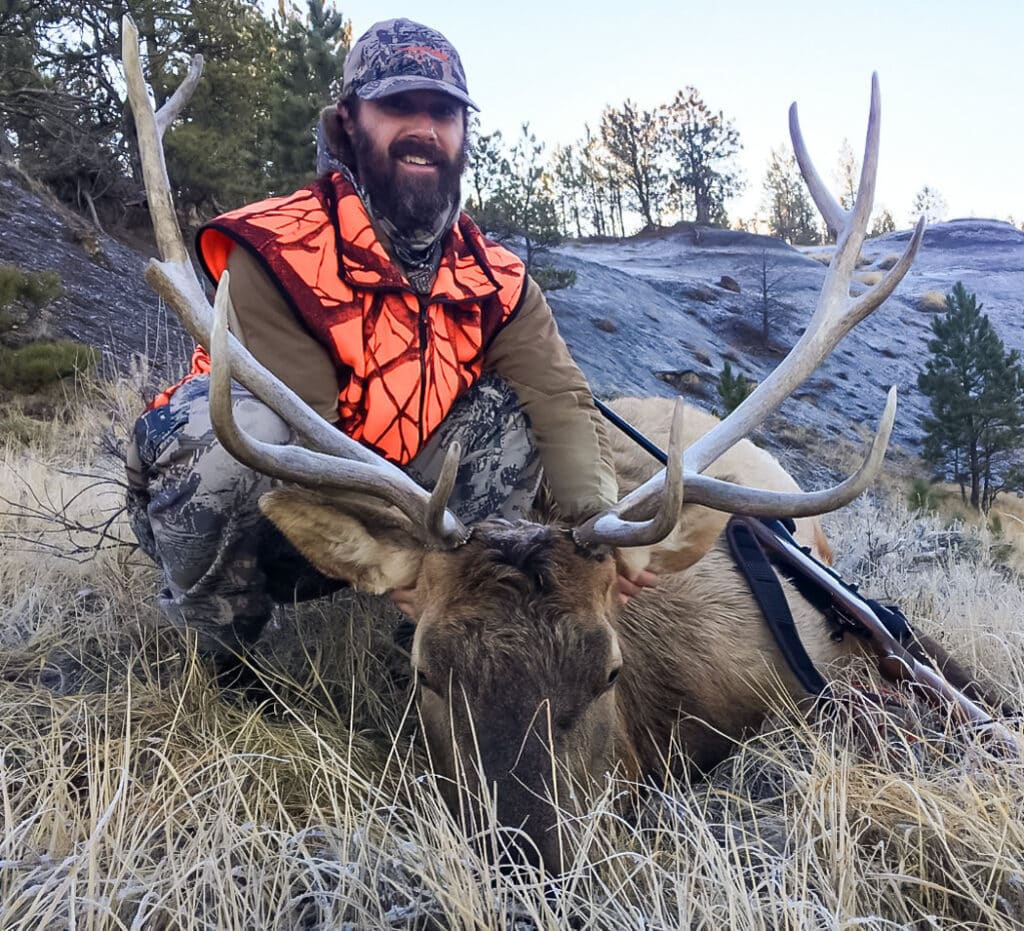An amendment and associated motion have been submitted by Vice Chairman Tabor for the December 20th FWP Commission meeting to change elk hunting in Hunting District 313, in Region 3, specifically hunt 313-45. The justification for this motion has been stated as helping outfitters impacted by the summer floods of 2022. Regarding the proposed amendment by Vice Chairman Tabor on behalf of the outfitting community in Region 3, we respectfully submit the following formal comments in opposition for consideration:
This amendment goes against sound biological principles.
- The intent of the former “late Gardiner hunt” was to protect the bull age class and the bull numbers that were vulnerable to overharvest in late December. If this amendment is adopted and HD 313 is converted to a general hunt as proposed, it would extend pressure on bull elk during their most vulnerable parts of December via the new “Heritage Muzzleloader Season.”
- Using the survey data provided by FWP biologist, HD 313 was below objective in 2014 and was at objective in 2015, 2016, and 2017. HD 313 was slightly above objective in 2018. And while the Department did not survey HD 313 in 2019 and 2020, it was then at objective in 2021 and only slightly above objective in 2022. This means that HD 313 has only been above slightly objective in two of the last nine years and does not demonstrate the need to increase the hunting pressure in this area; instead, it indicates that the collaborative compromise that was struck in 2017 is working.
- We recommend that if there is a biological need to adjust herd numbers, the Department focus on cow hunting as they are the vehicle to increase or decrease numbers. There is no biological need to harvest more bulls during the dead of winter, which would negatively impact the number and age class of bulls in HD 313. While the Department’s comment on the proposal only states that this amendment would influence the age class, it is clear that more opportunities for bulls mean fewer bulls in a given hunting district.
This amendment breaks trust with the public and relitigates an already addressed issue.
- This proposal was brought in at the eleventh out, buried on the Commission website, and was pushed by a small minority of the outfitting community. Dropping amendments such as this and in this manner communicate to the public that the Commission and the Department aren’t following through in good faith collaboration with all Montanans. MWF, our affiliates, and the public have made every effort to communicate openly, honestly, and early. We feel blindsided by this change, unfortunately.
- The current structure resulted from a season some years ago when heavy snow pushed a disproportionate number of elk out of Yellowstone National Park and into HD 313. Word got out, and the convergence of hunters killed an extraordinary number of bulls. The Commission was called upon to end the hunt on an emergency basis to stop the slaughter. To not repeat the mistakes of the past, the current structure was reached after much debate and compromise. This issue was settled at that time, and as we have seen from the hunting seasons’ results, this structure has generally worked well for most Montanans and the wildlife we care about. Therefore, there is no need, other than to line the pockets of a few, to change the current management strategy.
This amendment deviates from the intent of the “Heritage Muzzleloader Season.”
- Given the growing popularity of the “Heritage Muzzleloader Season” and the coming push from the legislature to unilaterally insert more effective modern inline muzzleloaders, this proposal deviants once again from what was promised to the public. If this amendment were to pass, the thousands of hunters that used to apply for the late Gardiner rifle hunt that was discontinued would now be able to line up with their highly effective, modern muzzleloader as these bulls try to make it to the wintering grounds around Daily Lake and Dome Mountain. In a year such as the one we are experiencing in 2022, the impact on the bulls of that herd would be devastating with rifles and compounded during the “Heritage Muzzleloader Season.” The current season structure is the only thing that protects the age class and number of bulls in this herd for the winter of 2022-23.
We understand the complexity of issues that influence the Commission and Department’s decisions and efforts to carry out its mandate to manage wildlife and public hunting opportunities. MWF appreciates the Commission’s work on this and other issues; it is challenging. The hunting public, commission, and others put years of work into this most recent round of season setting, the appropriate venue for such a drastic change. MWF has heard from many Montanans who said such moves continue to erode their trust and faith in FWP and the FWP Commission. MWF believes that a good faith effort is to withdraw this amendment and address this issue in the upcoming elk plan or in future season setting where the public can provide comprehensive, fulling informed comments and feedback.
We need people to participate in the commission meeting and voice their opposition to this misguided amendment. Sign up to participate by Zoom HERE. As always, the Commission will take public comments on agenda items both in person and via Zoom. If you wish to make a comment via Zoom, you must register by noon on December 19. If you have any questions, please contact MWF Director of State Policy and Government Relations, Marcus Strange, at mstrange@mtwf.org. As always, we appreciate all you do for Montana’s wildlife.
By Montana Wildlife Federation Director of State Policy and Government Relations Marcus Strange

